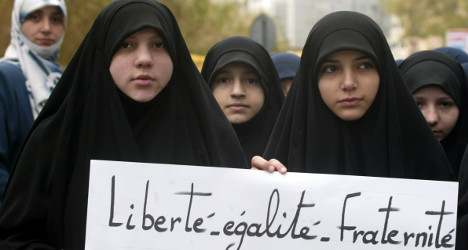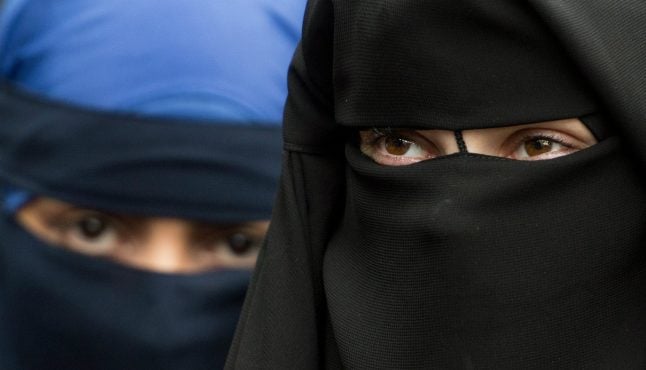“We have to be careful not to have a form of militant secularity in our country, which is counter-productive for children we would like to see adhere to secularity,” Najat Vallaud-Belkacem told reporters at a meeting of the Anglo-American Press Association in Paris.
France has a long-established secular tradition that has its roots in the anti-clericalism of the French Revolution and a 1905 law enforcing a strict separation between church and state.
In 2004, spooked that the growing number of Muslim girls wearing headscarves in public schools was eroding this separation, the government brought in a controversial law on secularity that banned students from wearing “conspicuous” signs of religion.
But a number of incidents since then have highlighted flaws in this law.
In April, for instance, the case of a Muslim girl who was twice banned from class for wearing a long, black skirt deemed a “conspicuous” sign of Islam caused nationwide outrage.
And several mothers who wear the veil have recently gone to court over a ban on them accompanying children on school trips.
“In recent years, we have reached levels of unwarranted tension, which go a long way in explaining the misunderstanding surrounding the notion of secularity, and the reason why some young people don't associate with it,” Vallaud-Belkacem said.
The 37-year-old rising star of the ruling Socialist party, who has come under fire in recent weeks for her set of school reforms, said she was opposed to an “ultra rigid position” that has seen veiled mothers systematically banned from school outings.
“As long as there is no proselytism… we must facilitate the partnership between parents and schools,” she said.
“How can a child adhere to school and the notion of secularity when they see their mother rejected from a school outing, stigmatised, left on the sidelines, just because she has a scarf on her head?”
She said secularity should not be imposed “as a strict rule” but brought alive for children and students so that they understand and adhere to it.



 Please whitelist us to continue reading.
Please whitelist us to continue reading.
Member comments